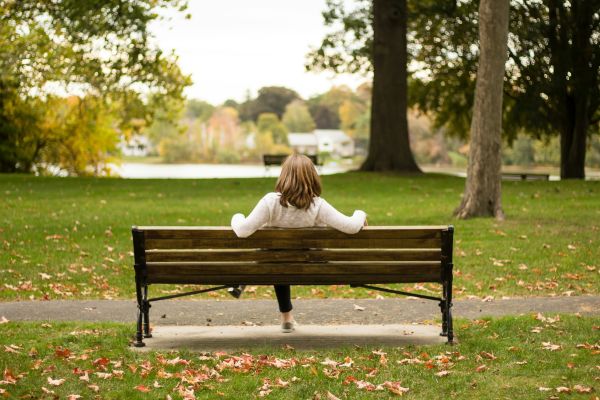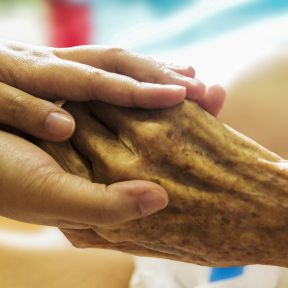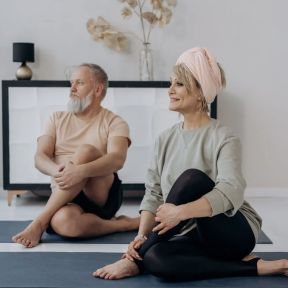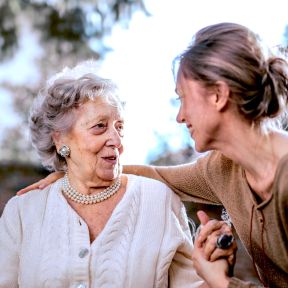The Upside to Aging
People are healthier and living longer than ever before. According to the Centers for Disease Control, life expectancy is at an average age of 78.7, with women at 81.1 years, and men at 76.1 years. While many older folks are keeping mentally and physically fitter, they are also remaining productive as well as involved, and nothing close to being a burden to society. With more years on the planet, more older people also enjoy wisdom, higher emotion regulation, a positive attitude, and less negative thinking. They just can’t lose sleep over disappointments and petty annoyances. To them, rolling in ill will is a waste of time.
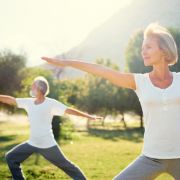
It is true, providing good mental and physical health, wellness and life satisfaction do get better into our sixties and seventies. Younger adults do indeed suffer more anxiety and depression than older adults. And studies have found that older people are overall more conscientious and agreeable; in addition, they are better able to regulate emotions when compared with younger people.
Various studies from across the globe have examined life satisfaction over adulthood, finding that younger adults have higher happiness levels, middle-aged adults are in the middle, and older adults are happier. In addition, research from the University of California at Davis found differences in how younger and older people perceived positive and negative imagery; the amygdala in older people, when compared with that of younger people, responded more to positive imagery, and less to negative imagery.
Older people have given up thinking that things should be a certain way; they know that if they fight life, they won’t win. They are more mellow, they don’t sweat the small stuff, and they tend to go with the flow. This may be partly because older people feel emotions less strongly, according to research from Australia. It’s easier for an older person to flash a poker face because they are more detached and they experience less internal angst.
According to the Seattle Longitudinal Study, having a flexible mental attitude helps a person fight cognitive decline, this has been found in people who are in their seventies and eighties. This flexibility is also related to high curiosity and high openness, people with these traits tend to avoid basking in their prior accomplishments, and instead look forward to new goals and challenges.
A study that appeared in The Journal of Positive Psychology looked at gratitude over a lifespan, and older people are indeed more grateful on average than people in middle age and younger adulthood. They are partly grateful that they are still standing, so to speak, and they are partly grateful for the people standing around them as well.
During the pandemic, older adults have proven to be surprisingly resilient. One study found that older adults, who were being studied for treatment-resistant depression, also exhibited healthy resilience in the face of pandemic stress. While they are concerned about the possibility that their mental health will suffer from continued physical distancing, they are more concerned about the risk of contracting the virus itself. In general, older adults appear to suffer less from anxiety disorders, depression, and trauma- or stress-related disorders.
There is the notion that our grandparents are old fools as well as rigid thinkers. According to Karl Pillemer, of Cornell University, older people actually have the tried-and-true experience of life; they have lived through war, loss, illness, among other upheavals. Learning from the wisdom of elders is more than a million years old. If our ancestors did not have the experience of elders, how would they have survived famine and disaster? In addition, elders have a better sense of who they are and they don’t care that much about what other people think.

With so much good news and hopefulness, people still can’t shake the potential worry that it will all go downhill at some point. The statistics on cognitive impairment and disease outcomes are concerning: Will I be more at risk for mental and physical health conditions around the corner. Older adults wonder how long they can manage without assistance and elder care. They also fret about their financial outlook and whether their funds will run out. While these worries can be real and are not baseless, recent statistics show that serious decline seems to abate at least until a person is in their eighties.
No. Your genes will not dictate how you age. It is not a fait accompli. Twin studies in Sweden have found that genes play some role in longevity, but certainly not all. In fact, we have a lot of control over how we age, by keeping ourselves mentally and physically active, we can forestall diminishment by a great degree. Your lifestyle—what you eat, how you sleep, level of physical activity, and more—really does matter.
Many people harbor negative perceptions such as competence going to pot the older we all get. In various studies, when older adults are reminded of bleak stereotypes, measures of cognitive function and memory show a decline. But when confidence is boosted, older people do quite well on cognitive performance. We are inherently prejudiced against old age, even older people feel this way, they hold onto their preconceived notions about what it means to get old.
Yes. If you are pessimistic about what life will be like in old age, you are at a higher risk for serious problems including dementia. By having these negative thoughts, the body is under stress and anxiety, which can lead to poorer health outcomes. Harboring a gloomy outlook will speed up decline, people who have negative stereotypes show decline in three years, but people who have a positive view about aging show the same decline in nine years. And research from the Yale School of Public Health showed that having positive stereotypes is linked with fewer mental health concerns, faster recovery from illness, and better health overall.
Ageist stereotypes are everywhere, which affects how we treat older people, as well as how they think about aging themselves. Some examples of ageism: older folks are sometimes refused credit or insurance, they are not given service in shops and restaurants, older people are considered digitally inept and too expensive in the workplace, and they are overlooked or depicted in the media as grumpy, doddering, frail, and feeble. Such thinking influences older adults, they believe these stereotypes themselves and then turn them into self-fulfilling prophecies.
While calling an old lady cute and adorable may seem harmless, it isn’t always positive. In fact, many people treat the elderly as if they are children. Speaking with older people in a high pitched tone, or using sing-song baby talk and child-level vocabulary only patronizes this age group. And it may even be detrimental. Researchers from Western Michigan University studied the communication styles of caretakers and found that older people were more alert and less cognitively impaired when they were addressed as plain old adults.



